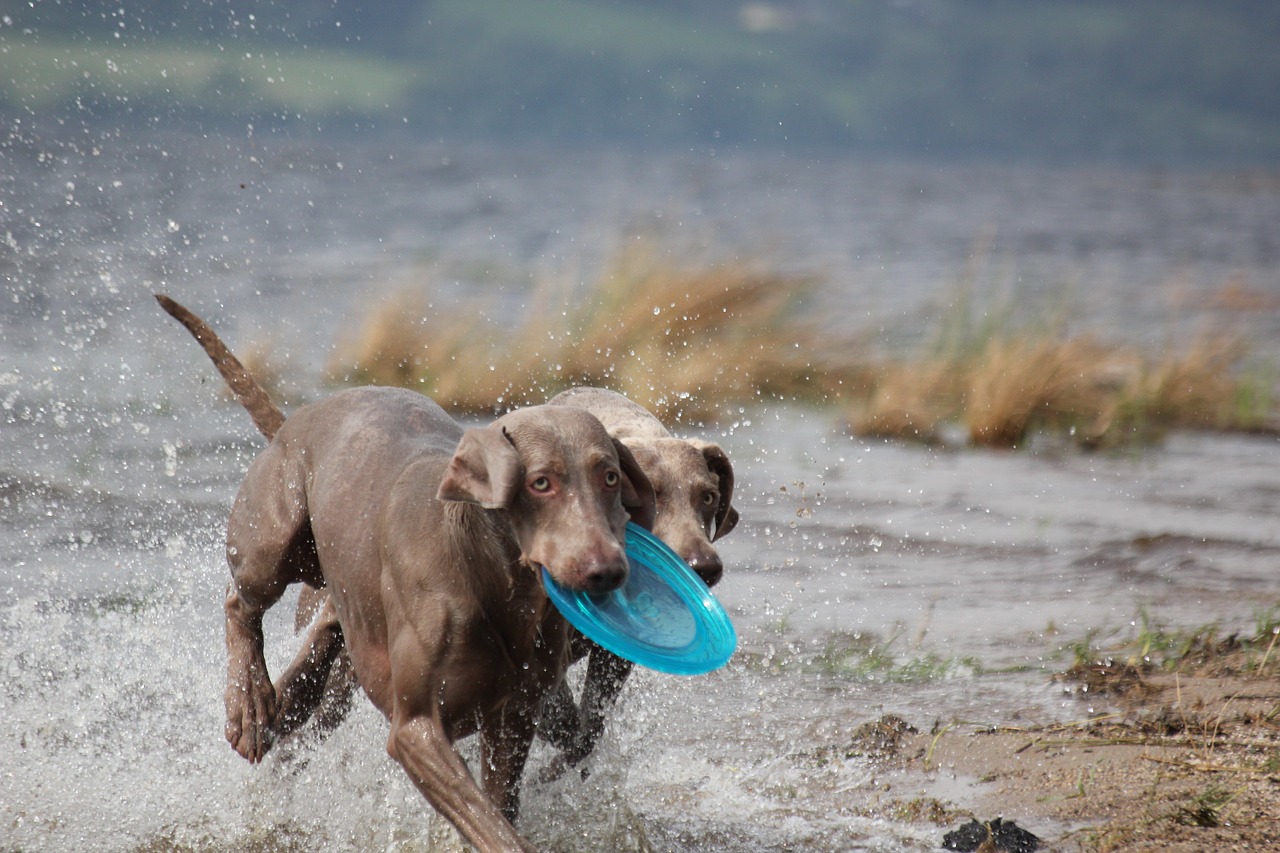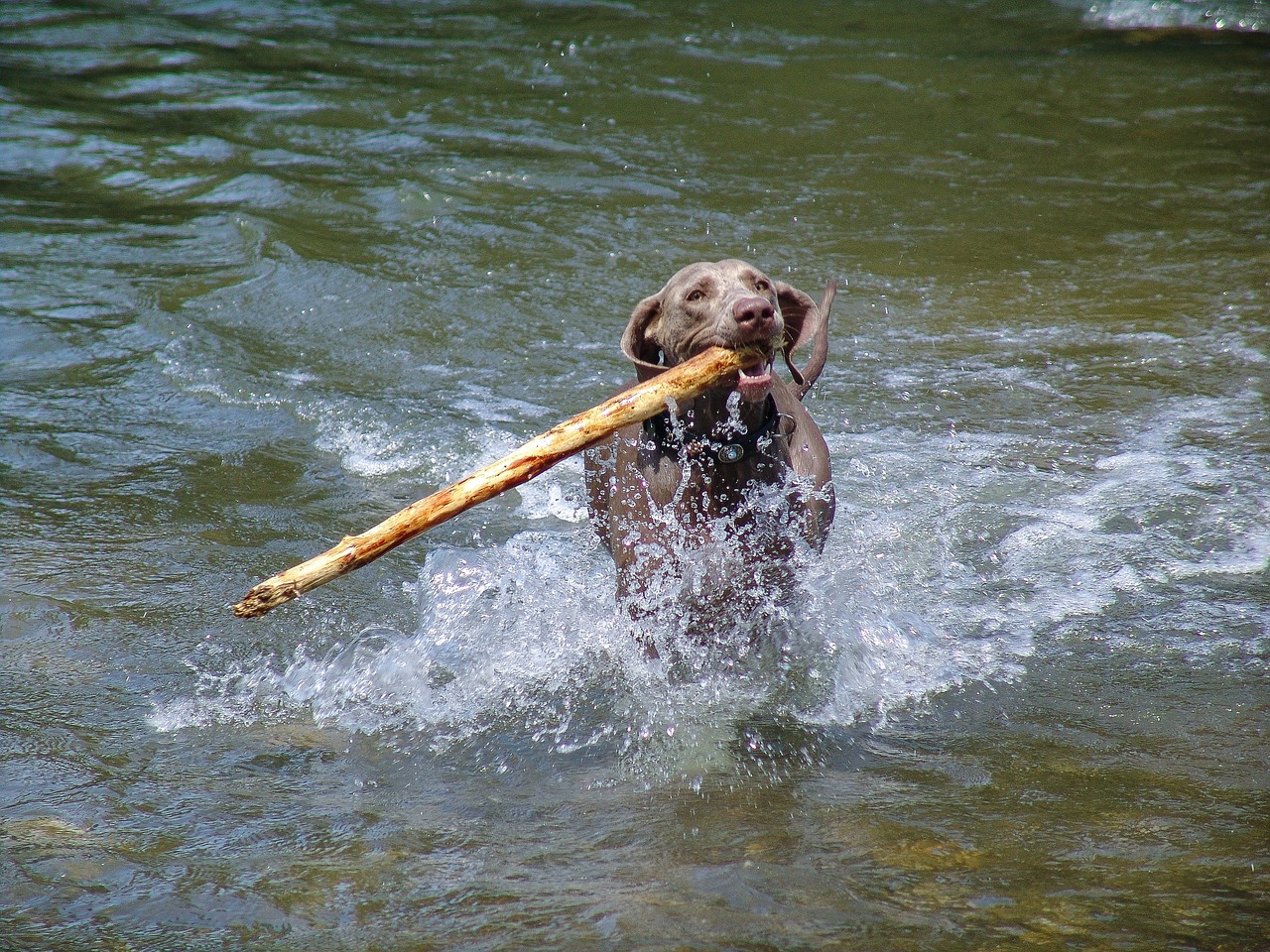Pets
What’s The Chew Power of a Weimaraner & Does It Damage?
The Weimaraner, with its putting grey coat and deep blue eyes, is an image of magnificence and athleticism. Traditionally bred for looking, the Weimaraner is a flexible and clever breed. However what about its chunk? How robust is a Weimaraner’s chunk, and may it trigger hurt? This text dives deep into the chunk power of the Weimaraner and evaluates the potential affect of its chunk.
The Historic Function of the Weimaraner
To grasp the Weimaraner’s chunk power, one should first perceive its historic position. Originating from Germany, Weimaraners have been bred as looking canine, particularly for big sport like deer and wild boar. This required a mix of stamina, agility, and energy, together with a powerful chunk to help throughout hunts.
Measuring the Chew Power of Weimaraners
Actual measurements of chunk power for all canine breeds are considerably elusive. Nonetheless, contemplating the Weimaraner’s dimension and its historic position, its chunk power could be estimated to be throughout the vary of 200-250 PSI (kilos per sq. inch). It’s vital however not as formidable as a number of the extra big breeds identified for his or her chunk.
Weimaraner’s Chew Power in Comparability
To contextualize the Weimaraner’s chunk power, when juxtaposed in opposition to different breeds, its chunk is significantly highly effective however not on the prime of the spectrum. Breeds just like the Mastiff or Rottweiler have a notably greater chunk power. Alternatively, smaller breeds or these not bred for looking or guarding naturally have a lesser chunk power in comparison with the Weimaraner.
The Influence: Does a Weimaraner’s Chew Damage?
Given their estimated chunk power, a chunk from a Weimaraner can actually be painful and doubtlessly dangerous. As with all breed, the diploma of ache or damage from a chunk is determined by the context and depth of the chunk. Nonetheless, Weimaraners are usually not susceptible to biting with out trigger or provocation.
Temperamental Traits of Weimaraners
Weimaraners are sometimes identified for his or her boundless power, intelligence, and loyalty. They bond intently with their households and may typically be protecting. Whereas they aren’t naturally aggressive, their excessive power ranges and looking instincts can typically manifest as nipping or playful biting, particularly if not adequately educated.
Chew Prevention: Coaching and Socialization
The important thing to making sure a Weimaraner doesn’t resort to undesired biting lies in early coaching and socialization. Optimistic reinforcement methods work exceptionally properly with this breed. Socializing a Weimaraner pet with varied environments, individuals, and different animals will guarantee a well-rounded and well-behaved grownup canine. Moreover, offering ample psychological and bodily stimulation will deter undesirable behaviors.
Conclusion
Whereas the Weimaraner doesn’t boast probably the most formidable chunk within the canine world, its chunk is potent sufficient to warrant respect and understanding. Recognizing the breed’s historical past, temperament, and particular person persona helps to offer context for his or her conduct. With correct care, coaching, and socialization, Weimaraners could be the loyal and mild companions they’re famend for, with biting being a minimal concern.
Incessantly Requested Questions About Weimaraner Bites

1. Are Weimaraners naturally aggressive biters?
No, Weimaraners usually are not inherently aggressive. They’re identified for his or her loyalty and affection in the direction of their households. Nonetheless, their looking background and excessive power ranges would possibly result in playful nipping if not accurately channeled or educated.
2. Why is my Weimaraner pet biting a lot throughout playtime?
Pet biting is a typical conduct throughout many breeds, together with Weimaraners. It’s a manner for them to discover their world and talk. Teething discomfort will also be a cause. With correct coaching, this conduct could be minimized as they develop.
3. How can I scale back my Weimaraner’s tendency to chunk or nip?
Constant coaching, early socialization, and offering loads of bodily and psychological stimulation are essential. Partaking them in actions that channel their power, like fetch or agility coaching, might help forestall undesirable biting.
4. What toys are greatest for Weimaraners who prefer to chunk?
Sturdy chew toys, puzzle toys, and interactive toys could be useful. Since Weimaraners have robust jaws, it’s important to offer them with toys that may stand up to their biting with out breaking up simply.
5. My Weimaraner snapped at a stranger. Is that this widespread?
Whereas Weimaraners are sometimes pleasant, they are often protecting of their household. It’s essential to introduce them to varied individuals and environments early on to make sure they’re well-socialized and fewer more likely to present unwarranted protecting behaviors.
6. Can Weimaraners chunk as a consequence of well being points?
Sure, like all canine, Weimaraners would possibly change into irritable or defensive in the event that they’re experiencing ache or discomfort. Common vet check-ups can determine well being points that would trigger adjustments in conduct.
7. How robust is a Weimaraner’s chunk in comparison with different breeds?
Whereas the Weimaraner’s chunk is powerful, particularly given its looking heritage, it’s not among the many strongest when in comparison with some bigger breeds identified for his or her chunk, like Mastiffs or Rottweilers.
8. Are Weimaraners protected round kids contemplating their chunk?
Weimaraners, when correctly educated and socialized, are protected round kids. Nonetheless, as a consequence of their dimension and power, it’s important to oversee interactions to forestall unintended nipping or knocking over a toddler throughout play.
9. How do I practice my Weimaraner to not chunk when guarding sources?
Useful resource guarding could be addressed via constructive reinforcement coaching. Instructing instructions like “drop it” or “depart it” and rewarding non-aggressive behaviors might help scale back this tendency.
10. Do older Weimaraners develop biting tendencies?
Not essentially. Nonetheless, as they age, they may change into extra delicate or irritable as a consequence of well being points or sensory adjustments. Common vet visits and understanding their distinctive wants as they age might help forestall potential biting situations.

